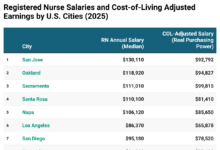How To Be a Good Investor? & 20 Tips For First time Investors

Being a good investor involves a variety of factors, including having a well-defined investment strategy, conducting thorough research and due diligence, diversifying your portfolio, and having patience and discipline

It is also important to manage risk through proper asset allocation and to stay informed about market conditions and economic trends. Additionally, it is helpful to consult with a financial advisor or professional for guidance and to periodically review and adjust your investment plan as needed.
The most successful investors aren’t made in a day. Getting to know the financial world and your personality as an investor takes time and patience, not to mention trial and error.
20 Tips for First Time Investors

- Start by setting clear financial goals and creating a budget.
- Educate yourself about different types of investments and their potential risks and returns.
- Diversify your portfolio by investing in a mix of assets, such as stocks, bonds, and real estate.
- Consider working with a financial advisor or professional to help guide your investment decisions.
- Be patient and disciplined with your investments; don’t let short-term market fluctuations discourage you.
- Keep an eye on the overall economic conditions and the performance of the companies you’re invested in.
- Avoid trying to time the market; instead, focus on long-term investments.
- Be prepared for some level of risk; all investments come with some level of uncertainty.
- Be aware of fees and expenses associated with your investments, as they can eat into your returns.
- Avoid impulsive or emotional investing decisions.
- Consider dollar-cost averaging, which involves investing a fixed amount of money at regular intervals.
- Take advantage of tax-advantaged retirement accounts, such as 401(k)s and IRAs.
- Consider investing in index funds or exchange-traded funds (ETFs) as a low-cost way to diversify your portfolio.
- Be mindful of your own personal risk tolerance and only invest in what you are comfortable with.
- Keep an emergency fund of cash to help you through unexpected financial difficulties.
- Stay diversified, don’t put all your eggs in one basket.
- Keep an eye on the news, read company reports and pay attention to analyst upgrades and downgrades
- Understand the different types of order you can use to buy and sell investments
- Review your portfolio regularly to ensure it still aligns with your goals and risk tolerance.
- Keep a long-term perspective, don’t get caught up in short-term market fluctuations







